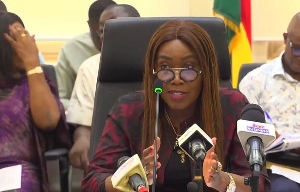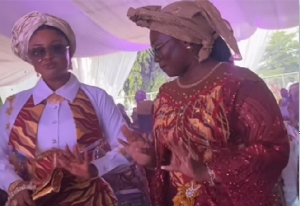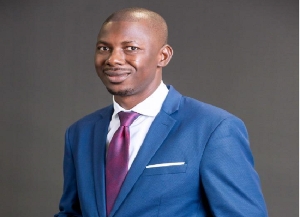Opinions of Tuesday, 21 February 2017
Columnist: Pacas, Idris
Our MPs and journalists must pronounce words acceptably
This article is written in response to the widespread and gross mispronunciation of two words during this early part of 2017. The words are CHASSIS and KOWTOW. CHASSIS is used in the phrase chassis number; this phrase is associated with the story of missing state vehicle /vii-i-kls/.
KOWTOW is associated with post-election violence; it was used in the statement that was read on Friday 17 February, 2017, on behalf of the Majority in response to the Minority’s accusing the NPP of endorsing post-election violence.
How are the words grossly mispronounced? They are spell-pronounced. Spelling pronunciation is the pronunciation of the word based on the letters that combine to form. The development of English, like many of other languages, rejects such a system of pronunciation.
That is, letters of alphabets were invented to represent sound and not the reverse. Therefore, the acceptable pronunciation of many English words can hardly be deduced from the spelling. Compare ‘Islam and ‘island’.
You can correctly (or better still acceptably) pronounce ‘Islam’ by the letters but ‘island’ cannot. That is, island is pronounced as /ai-land/. The latter is the case for CHASSIS and KOWTOW.
Before attempting to discuss their pronunciation, I explain what I mean by acceptable pronunciation. This pronunciation means to sound the word in a way that is understood by the listener /li-sina/. We are not English people and therefore do not have to ‘force’ ourselves to mimic their pronunciation.
However, sounding words according the way we want or think without any regard to established rules may lead to miscommunication. A good example is the word GNEISS (a type of metamorphic rock).
Some social studies and geography teachers ‘mispronounce’ it as /ji-niis/. Its acceptable pronunciation is /nice = nais/. In this case, students of the teachers who mispronounce the word becomes confused when they hear a rock name mentioned as /nice/; that is, such students might think that the adjective is intended.
Therefore, acceptable pronunciation is required for effective communication especially in today’s world as a global village. This requirement is even necessitated by the fact that the listener may hardly get the chance to ask the speaker.
Let’s now attack our words. CHASSIS is mispronounced as /kyaa-sis = chaa-sis/. We will learn the acceptable pronunciation by combining two pieces of information. First, we notice that digraph ‘ch’ takes different sounds. It is pronounced ‘k’ as architecture and Achatina. It is also pronounced ‘ky’ as in charm and chalk. Yet, it is pronounced ‘sh’ as in sachet and machete.
Second, we notice that some letters are silent in some words. An example is ‘t’ in sachet /sha-shei/ and depot /de-poh/. Another example is ‘s’ in fracas /fra-kaa/ and debris /de-brii/.
Combining those two pieces of information, we ‘acceptably’ pronounce chassis as ‘sha-si. Its plural is /sha-siiz/. Notice that the acceptable pronunciation differs completely from what we hear every day. Thus, if Ghanaian student never encounters this word in an English lesson, such a student will be lost if s/he attends an international workshop where the term is mentioned.
To our second word—KOWTOW. The Honourable Member ‘mispronounced’ the word as /koh-toh/. To attempt its acceptable pronunciation, we will use our previous knowledge from rhymes. Look at these words—cow, how and now. What do they have in common? They end in /au/ sound.
Accordingly, kowtow is acceptably pronounced as /kau-tau/. Notice again that a student who is used to /koh-koh/ will be confused on hearing /kau-tau/. Such confusion is avoided by acceptable pronunciation.
How can teachers and parents guide their schoolchildren to pronounce words acceptably? Cross-check every word before teaching it. Two examples are these:
1. An ARE is enough.
2. A SOW becomes pregnant for 3 months, 3 weeks and 3 days.
In Sentence 1, ARE pronounced as /air/ means a piece of land measuring 10 m by 10 m. It occurs in the word hectare (hecto- + are). Notice that if the teacher pronounces ‘are’ as the verb, his/her student will never grasp the meaning of the sentence.
In Sentence 2, SOW pronounced to rhyme with /how/ is a noun meaning a female pig. Notice again that a student who pronounces words by the spelling will pronounce sow as /soh/, which refers to the verb.
The five words used as examples in this write-up (GNEISS, CHASSIS, KOWTOW, ARE and SOW) tell us never to assume that we know some words for sure and that we need not cross-check them.
Why this ‘nonsense’ write-up? Mispronunciation is one of the causes of failures at both BECE and WASSCE. Both examples require correct spelling to score in questions that begin with list, state, mention etc.
For WASSCE, English language has an oral paper in which students listen /li-sn/ to voice from a tape and answer questions. One of my students ever wrote a phrase like this: Members of the diplomat ‘core’. I never blamed the student because he incorrectly assumed that we write as we speak. That is, he was expected to write CORPS, which is a homophone for ‘core’.
Thank your teacher ‘elephantly’ if you could acceptably pronounce all six words discussed thus far [GNEISS, CHASSIS, KOWTOW, ARE (noun), SOW (noun) and CORPS]. Conversely, if my tiring write-up leads you to pronouncing them correctly, give me the thanks.
Long live practising teachers! Long live Kwame Nkrumah’s Ghana!
Idris Pacas
020-9101533 & iddrisuabdulai12@yahoo.com












